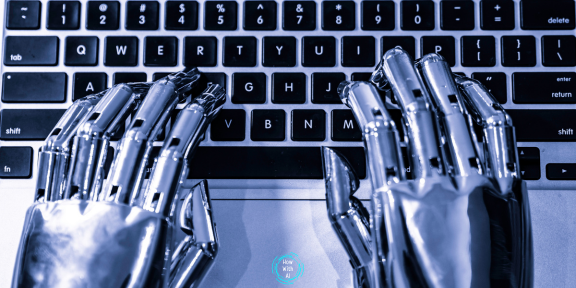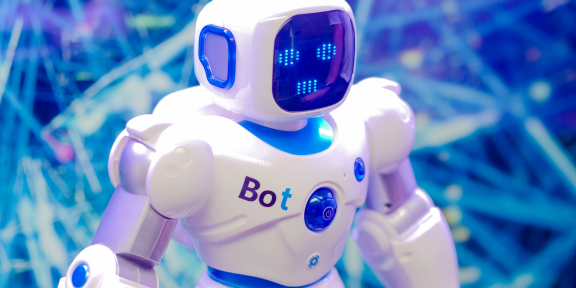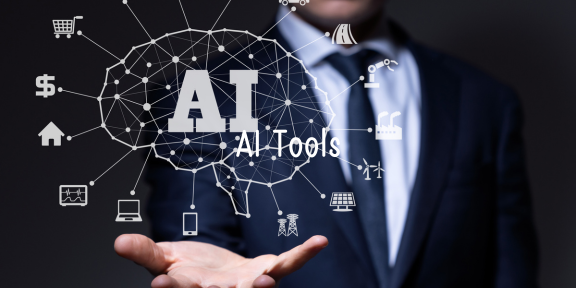The Ultimate AI Tools in 2023: Free & Paid Tools

The era of artificial intelligence (AI) is revolutionizing the way we live and work. In this comprehensive guide, explore a wide array of AI tools designed to boost productivity, automate tasks, and provide valuable insights across various industries. Discover the power of AI in marketing, finance, healthcare, and more, and unlock your potential to harness these groundbreaking technologies to stay ahead of the curve.
Short Summary
- AI tools are a broad range of software applications utilizing machine learning algorithms to automate tasks, enhance efficiency, deliver insights and enable businesses to make informed decisions.
- AI tools can be used across different industries including marketing, finance, healthcare and customer service with applications from personal assistants through to entertainment.
- To get started with AI Tools, it is important for users to gain an understanding of programming mathematics and statistics for them to find the right tool that meets their needs.
Understanding AI Tools: What They Are and How They Work
AI tools are software applications designed to automate tasks, enhance efficiency, deliver insights, and enable businesses to make informed decisions. At the core of these tools are machine learning algorithms that learn from past experiences and generate predictions or decisions. From chatbots and virtual assistants to recommendation engines and image recognition software, AI tools encompass a broad range of applications.
AI image upscalers are a prime example of AI tools in action. These upscalers use advanced algorithms to improve low-resolution images or raise the resolution of an image without diminishing its quality. 10Web, an AI-powered platform, facilitates the creation of high-quality WordPress websites, making the process more efficient. Scikit learn is another useful AI tool, employed in Python programming to enhance the efficiency of developers.
AI tools also come in various pricing structures to cater to different budgets. For instance, WriteSonic offers a free plan, with paid plans starting at $19 per month. ChatGPT, on the other hand, is equipped to provide assistance with text-based tasks, including writing code and editing blogs. Lovo AI, suitable for content creators, educators, and businesses, provides high-quality audio content. You can also utilize Summari through Chrome extension, mobile application, and integrations for Slack and Teams.
Top AI Tools for Different Industries

AI tools are employed across various industries, including marketing, finance, healthcare, and customer service, offering tailored solutions to streamline business processes and optimize outputs.
In the following sections, we will delve into the specific AI tools available for each industry, shedding light on their unique capabilities key features and potential benefits.
Marketing AI Tools
AI-powered marketing tools are transforming the landscape of digital marketing. These tools employ advanced algorithms to analyze social media data and gain insight into customer behavior, sentiment, and preferences, enabling the creation of more effective social media campaigns and personalized content. The result is heightened customer engagement, satisfaction, and retention.
Examples of AI tools for marketing and social media include Scalenut, Rank Math, Pro Rank Tracker, Phrasee, Synthesia, Ocoya, Pencil, Designs.ai, Surfer SEO, WordStream, Acrolinx, Jasper, and AdCreative. These tools come in various pricing models, catering to different budgets and requirements.
From writing captivating social media captions to generating eye-catching graphics and streamlining content creation and scheduling, AI marketing tools are equipped with a plethora of advanced features designed to enhance your marketing efforts. Additionally, chatbots, sentiment analysis tools, image recognition technologies, speech recognition, and social media management platforms are just some of the advanced functionalities provided by these tools.
Customer Service AI Tools
AI tools are also transforming the customer service industry, automating tasks, providing insights, and offering personalized support. These tools integrate various applications and programs, social media scheduling, analytics tracking, data insights, and natural language processing.
AI-powered customer service tools can help businesses become more efficient, offer tailored communication, heighten customer satisfaction, and create conversations that sound more natural. Examples of customer service AI tools include Zia, IBM Watson Analytics, and Microsoft Azure Machine Learning.
The implementation and maintenance of AI customer service tools can be costly, and errors can occur. However, the benefits of utilizing these tools, such as improved efficiency, tailored communication, and heightened customer satisfaction, often outweigh the drawbacks.
AI Tools for Content Creation

Diving deeper into the realm of AI tools, let’s explore the world of AI-powered content creation – a domain where machine learning algorithms generate content in various formats, such as articles, videos, images, and even audio files. By streamlining the content creation process, these tools enable users to dedicate their time and resources to other essential tasks.
AI Copywriting Solutions
AI copywriting solutions use algorithms to assist with writing marketing copy and content efficiently. Tools such as Jasper, WriteSonic, and ChatGPT utilize advanced algorithms to generate high-quality copywriting that is tailored to the brand and the intended outcomes.
These AI copywriting tools provide the option to have ai models specify the title and select the tone (professional, friendly, persuasive, academic), along with entering a short description of the piece and offering multiple lyric options. The result is captivating copy that resonates with the target audience and drives the desired outcomes.
Examples of AI copywriting tools include Scalenut, Rank Math, Retention Science, Pro Rank Tracker, Phrasee, RAD AI, Synthesia, Ocoya, Pencil, Adobe Sensei, Designs.ai, Surfer SEO, WordStream, Acrolinx, Jasper, and Adzooma. These tools come in various pricing models, catering to different budgets and requirements.
From writing captivating social media captions to generating eye-catching graphics and streamlining content creation and scheduling, AI marketing tools are equipped with a plethora of features designed to enhance your marketing efforts. Additionally, chatbots, sentiment analysis tools, image recognition technologies, speech recognition, and social media management platforms are just some of the advanced functionalities provided by these tools.
AI Video Editing and Generation
AI video editors and generators are revolutionizing the way video content is created. These tools use artificial intelligence to generate videos faster and more cost-effectively, allowing content creators to focus on creativity and storytelling. AI video editors, such as Amper Music, Pictory AI, Lumen5, Design Beast, Biteable AI, FlexClip, Wave.video, Make-a-Video, Boomy, Animaker, Reface, Invideo, Descript, Magenta Studio, Jukebox, Soundraw, Designs.ai, Animoto, Adobe Premiere Pro, Fliki, Steve.ai, AIVA, Runway, Synthesia, and Abe, provide a range of features and pricing plans to suit various needs and budgets.
These tools can improve existing video footage or generate new videos based on text input, streamlining the video editing process by automating laborious tasks and providing precise and efficient tools. As a result, video editors can work faster and more productively.
In addition to video editing, AI video generators can also create realistic-sounding voices using deep learning models, such as Generative Adversarial Networks (GANs) and Variational Autoencoders (VAEs), to learn and replicate characteristics of human speech. This technology is particularly useful in gaming and customer service industries, where high-quality audio content is crucial.
AI Image and Art Creation
AI-generated art tools, such as Upscale.media, Icon8, Media.io, and DALL-E-2, use advanced algorithms to generate unique images create videos and artwork from scratch, or modify existing images following text-based prompts. This technology has numerous applications, not only in the realm of art, but also in various industries where high-quality visuals are essential.
The advent of AI-generated art provides novel opportunities for creative expression that are accessible to all. With just a few clicks, anyone can become an artist and create stunning visuals, regardless of their artistic background or skills. AI-powered image upscalers, such as those used in healthcare, can also be employed to enhance the quality of low-resolution images, facilitating the diagnosis and treatment of medical conditions. AI image upscalers can greatly improve the quality of gaming and virtual reality graphics. This makes the experience more immersive and enjoyable.
Moreover, AI music generators, such as MuseNet, leverage deep learning algorithms to produce music in a variety of genres, from classical to jazz, pop, hip-hop, and beyond. These tools can be employed for entertainment purposes and in music education, introducing students to different musical styles and structures, and refining their compositions based on the algorithms used by the AI music generator.
AI Tools for Data Analysis and Decision Making

AI tools for data analysis and decision making harness the power of machine learning to analyze vast amounts of data and provide valuable insights, enabling businesses to make better-informed decisions.
In the following sections, we will explore various AI-powered analytics tools and AI decision support systems that are instrumental in driving insights and optimizing decision-making processes.
AI-Powered Analytics Tools
AI-powered analytics tools, such as Zia, IBM Watson Analytics, and Microsoft Azure Machine Learning, integrate machine learning algorithms and statistical techniques with AI-driven automation to obtain comprehensive, valuable insights from large datasets. These tools can assist businesses in making more informed decisions by providing insight into customer behavior, market trends, and other data-driven insights.
Furthermore, they can automate data analysis, which can be beneficial in terms of both time and cost savings. By employing AI-powered analytics tools, businesses can gain a competitive edge and make informed decisions that drive growth and success.
From understanding customer preferences to optimizing marketing campaigns, these tools play a pivotal role in unlocking the power of data to transform businesses.
AI Decision Support Systems

AI decision support systems are computer-based aids that utilize artificial intelligence techniques to help humans make more informed decisions. These systems can expedite decision-making, enhance accuracy, and uncover patterns and trends in data that may not be immediately discernible to humans.
AI decision support systems can be classified into two distinct categories: rule-based systems and machine learning systems. Rule-based systems employ pre-defined rules to generate decisions, while machine learning systems rely on algorithms to learn from data and produce decisions.
By leveraging AI decision support systems, businesses and individuals can make better-informed decisions, leading to improved outcomes and enhanced efficiency in various domains, from marketing and medicine to finance and customer service.
AI Tools for Personal Use

AI tools are not only revolutionizing the way businesses operate, but also offering innovative solutions for personal use. In this section, we will explore AI personal assistants and AI entertainment tools that can help streamline everyday tasks and provide unique experiences for individuals.
AI Personal Assistants
AI personal assistants, such as Josh, Replika, and Wade, leverage natural language processing (NLP) to understand voice and text commands and assist with tasks such as scheduling appointments, sending messages, and responding to inquiries. These AI personal assistants can optimize time and improve productivity by automating mundane tasks. Additionally, they are capable of offering personalized recommendations and assisting with decision-making.
However, there are challenges associated with AI personal assistants. The implementation and maintenance of these tools can be costly, and errors can occur. Furthermore, they may be unable to comprehend intricate commands or inquiries and may not be able to offer precise answers.
Despite the challenges, AI personal assistants continue to gain popularity and offer valuable support for individuals in various aspects of their daily lives. With continued advancements in natural language processing and AI technology, these tools can become even more effective and efficient in the future.
AI Entertainment Tools
AI entertainment tools, such as, Yarn, and Deepbrain’s AI Studios, utilize artificial intelligence to generate or improve entertainment content, such as music, film, television, and video games. For instance, PlayPhrase.me is an AI tool that locates movie clips with a specific quote. This innovative application of AI technology adds a fun and interactive element to the entertainment experience.
In addition to AI-generated content, AI writing assistants and AI writing tools can also provide unique and engaging content for personal use. These tools can help users generate blog posts, social media posts, captions, and more, allowing individuals to express themselves creatively and effectively.
As AI continues to advance, the potential for AI entertainment tools to enhance our leisure time and provide unique and engaging experiences is immense. From generating captivating content to streamlining the content creation process, these tools have the potential to transform the world of entertainment.
AI Tools for Education and Research

AI tools are also making a significant impact on education and research, providing innovative solutions to facilitate learning and streamline research processes.
In this section, we will explore AI tutoring systems and AI research assistants that are revolutionizing the way we learn and conduct research.
AI Tutoring Systems
AI tutoring systems are computer-based learning systems that leverage artificial intelligence to offer personalized instruction and feedback to learners. By interacting directly with students and fulfilling many of the instructional functions typically assigned to teachers or tutors, these systems can provide more individualized support and guidance.
AI tutoring systems utilize natural language processing, machine learning, and other AI technologies to comprehend student input and deliver tailored instruction and feedback. Additionally, they can leverage data from past interactions to enhance their comprehension of the student and provide more precise instruction.
The benefits of AI tutoring systems include individualized instruction and feedback, immediate feedback and support, and enhanced focus and engagement for students. By leveraging AI technology, these systems can transform the learning experience and help students achieve their full potential.
AI Research Assistants
AI research assistants, such as Iris.ai, Semantic Scholar, Elicit, and Genei, utilize artificial intelligence to assist researchers with their tasks, including locating papers, extracting significant claims, summarizing, generating ideas, recognizing emerging hot spots and research trends, and optimizing research reading, writing, data analysis, and coding workflows.
These tools provide valuable support to researchers by streamlining various aspects of the research process and enabling them to focus on more important tasks, such as interpreting findings and drawing conclusions.
AI research assistants not only help researchers save time and effort, but also provide valuable insights and information to enhance the overall quality of research. As artificial intelligence continues to advance, the potential for AI research assistants to transform the world of education and research is immense.
Choosing the Right AI Tool for Your Needs

Selecting the appropriate AI tool for your needs is crucial to ensure the best possible results. To make an informed decision, it is important to consider factors such as the type of machine learning algorithms, workload reduction, data preparation, model updates, scalability, and cost.
Before committing to a specific AI tool, it is essential to thoroughly assess your requirements and objectives. This includes defining your goals and use cases clearly and considering the complexity of the task and the level of support offered by research tool.
There are numerous resources available to help you find a tool that meets your individual requirements, including online databases, reviews, and comparisons of various AI tools. Staying informed of AI news and developments can also help you identify emerging trends and new tools that may be more suitable for your needs.
By carefully evaluating your options and considering the factors mentioned above, you can find the right AI tool to help you achieve your goals and enhance your productivity.
How to Get Started with AI Tools

Getting started with AI tools requires understanding the basics of machine learning and artificial intelligence. It is recommended to become familiar with the fundamentals of programming, have a comprehensive grasp of mathematics and statistics, and understand machine learning algorithms and AI concepts such as deep learning, natural language processing, and computer vision.
Acquiring the fundamentals of programming can be most effectively achieved by initiating with a language such as Python or JavaScript and then progressing to more complex subjects like data structures and algorithms. Gaining a comprehensive understanding of mathematics and statistics can be achieved by enrolling in courses in calculus, linear algebra, and statistics.
Deep learning, natural language processing, and computer vision are some of the most relevant machine learning algorithms and AI concepts to master. By grasping these foundational concepts, you will be well-equipped to harness the power of AI tools and transform your work and personal life.
The Future of AI Tools

The future of AI tools is bright, with more powerful and sophisticated tools being developed every day. As technology progresses, we can expect to see more advanced AI tools that can carry out intricate tasks with greater precision and efficiency. AI is expected to improve various sectors and reshape how we live and work, from automating mundane tasks to providing insights into customer behavior and aiding in decision-making.
Furthermore, the ongoing development of the machine learning technology, natural language processing, and computer vision will continue to advance AI tools and their capabilities. As we continue to embrace AI tools in various aspects of our lives, their potential to transform industries, enhance productivity, and revolutionize the way we live and work becomes increasingly evident.
With the rapid advancements in AI technology, the possibilities are virtually limitless.
Wrap Up of AI Tools
In conclusion, AI tools are revolutionizing various industries, from marketing and finance to healthcare, customer service, and beyond. By harnessing the power of these groundbreaking technologies, individuals and businesses alike can unlock their full potential and stay ahead of the curve. As we continue to explore and embrace the possibilities offered by AI tools, we pave the way for a future where artificial intelligence plays an increasingly vital role in our daily lives, transforming the way we live, work, and interact with the world around us.
Frequently Asked Questions
What are AI tools?
AI tools are specialized pieces of software that utilize artificial intelligence technology to automate tasks, perform data analysis, and make decisions. AI tools can be found in many industries such as finance, healthcare, education, and marketing, making them useful and necessary for modern businesses.
What is the best AI tool?
There really isn’t a frontrunner for the best AI tool because it really depends on what kind of tool you need. However, if we had to pick one tool we would choose Zapier for it’s flexibility and ability to integrate with numerous other platforms.
What are the 4 types of AI with example?
There are four primary categories of artificial intelligence: reactive machines, limited memory, theory of mind, and self-awareness. Examples include facial recognition systems, virtual assistants, gaming algorithms, and autonomous robots.
What is AI software platform?
The design of AI software platforms are to facilitate the development of AI-driven solutions. These platforms provide tools for developers to build, deploy and manage their AI applications, taking advantage of sophisticated algorithms and models to enhance accuracy and performance.
Designed to improve accuracy and performance AI algorithms and models allow developers to create more powerful and efficient AI applications. By leveraging these tools, developers can create AI.
300+ AI Tools List:
(yes, some of these include affiliate links)
